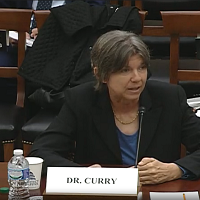 The scene is a hot and crowded gym filled with middle school students, parents, and teachers. You’re standing by your project, waiting for your teacher to give it a grade. You look around to see your friends’ projects. You find that everyone conducted the same experiment that you did. You examine each project, only to find that everyone came to the same conclusion–everyone except you. You are a little puzzled, but you are confident that you conducted your experiment to the best of your sixth-grade scientific ability. Your teacher comes to your table, and you stand tall as she reads your conclusion.
The scene is a hot and crowded gym filled with middle school students, parents, and teachers. You’re standing by your project, waiting for your teacher to give it a grade. You look around to see your friends’ projects. You find that everyone conducted the same experiment that you did. You examine each project, only to find that everyone came to the same conclusion–everyone except you. You are a little puzzled, but you are confident that you conducted your experiment to the best of your sixth-grade scientific ability. Your teacher comes to your table, and you stand tall as she reads your conclusion.
Without questioning your research methods, your teacher quickly remarks, “Your conclusion clearly does not match the consensus of the rest of the students in the science fair. Your conclusion is therefore wrong, and I’m going to have to fail you for that.”
At this point, you may be asking: when did the scientific method rely on consensus?
In the real-life science fair dedicated to the study of climate, the scientists and professors who disagree with the global-warming consensus have essentially been given a failing grade. Though they hold doctorates and claim Nobel prizes, they are repeatedly mocked by the supposed scientific majority for their work that challenges the popular beliefs surrounding climate change.

 In the documentary “Climate Hustle,” many of these researchers and professors share their experiences after they openly expressed their skepticism with the scientific community. Dr. Judith Curry, who holds a PhD in Geophysical Sciences from the University of Chicago, recalls her experience of being labeled as a “climate heretic” for her conclusions on climate change. Nobel-Prize-winning professor Ivar Giaever disagreed with the religious nature of the climate change consensus, and he has been added to the list of “climate deniers.”
In the documentary “Climate Hustle,” many of these researchers and professors share their experiences after they openly expressed their skepticism with the scientific community. Dr. Judith Curry, who holds a PhD in Geophysical Sciences from the University of Chicago, recalls her experience of being labeled as a “climate heretic” for her conclusions on climate change. Nobel-Prize-winning professor Ivar Giaever disagreed with the religious nature of the climate change consensus, and he has been added to the list of “climate deniers.”
Free debate over scientific conclusions should be promoted, but those with mainstream climate beliefs refuse when given the chance to debate climate “skeptics.” The beauty of the scientific method is that it can be used to validate or beneficially change standing theories. Now, it seems that the scientific method regarding climate change is to reject any conclusion that does not agree with the already-defined consensus.
At this point, we should be asking ourselves a few questions:
- What do skeptical scientists lose from openly criticizing the scientific consensus on climate change?
- What do those in the consensus gain from refusing to let opposing voices speak in the debate?